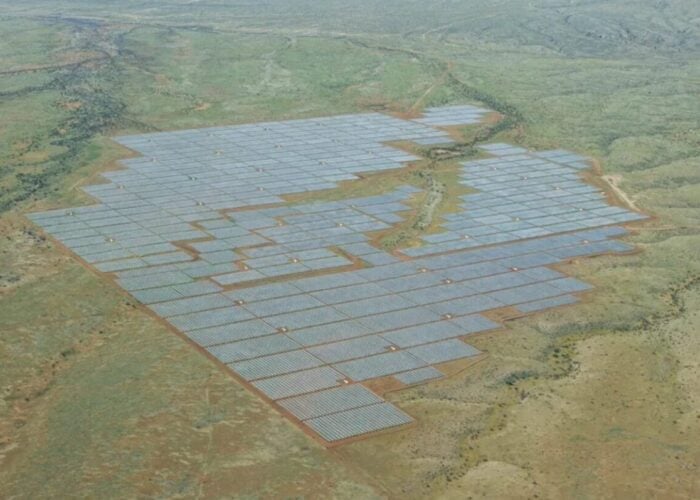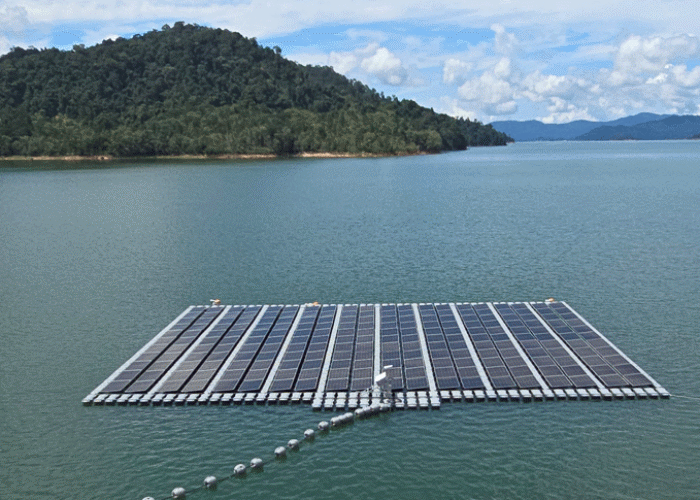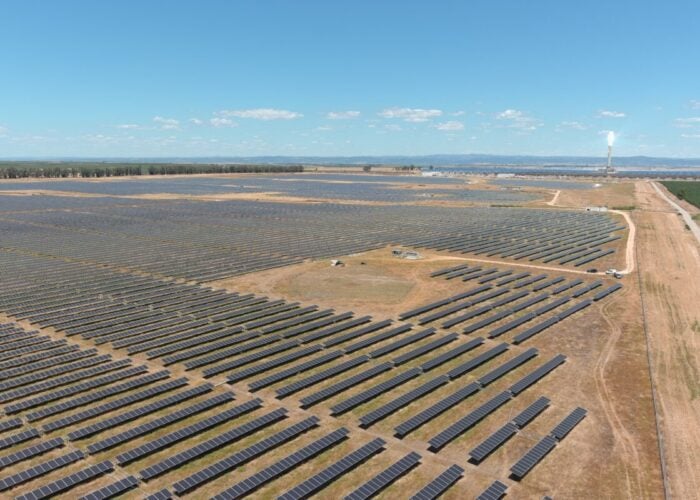
The US House of Representatives on Friday passed the Inflation Reduction Act (IRA). The largest climate package in US history will now move to the desk of President Joe Biden, where it is expected to be signed into law as early as today.
Containing US$369 billion in energy security and climate change programmes over the next 10 years, the IRA passed in a party-line vote of 220 to 207 in the Democrat controlled House.
Unlock unlimited access for 12 whole months of distinctive global analysis
Photovoltaics International is now included.
- Regular insight and analysis of the industry’s biggest developments
- In-depth interviews with the industry’s leading figures
- Unlimited digital access to the PV Tech Power journal catalogue
- Unlimited digital access to the Photovoltaics International journal catalogue
- Access to more than 1,000 technical papers
- Discounts on Solar Media’s portfolio of events, in-person and virtual
Joe Manchin – the obstructive Democratic Senator from West Virginia whose opposition had stymied Democrats’ efforts to pass the larger Build Back Better (BBB) bill – said he was “proud of our work to get [the IRA] across the finish line”. Manchin performed a dramatic U-turn at the end of last month, forcing a compromise for a slimmed down version of BBB, which became called the IRA.
Biden, who said on Friday that he was going to sign the Act into law this week, tweeted that the IRA would see the number of solar modules in the US rise from 240 million in 2021 to nearly one billion in eight years’ time. Citing data from the US Department of Energy (DOE), he said this was 300 million more modules than would have been possible without the IRA.
As part of the IRA, which has been described as the US’s “best chance to build a solar manufacturing base”, US$30 billion will be earmarked for production tax credits (PTC) to accelerate US clean energy manufacturing, while an additional US$10 billion of investment tax credits (ITC) will be provided to build clean technology manufacturing facilities, such as factories that make solar modules and other clean technologies.
Under the proposals, the solar manufacturing tax credits are as follows:
- Modules would receive US$0.07, multiplied by the capacity of the module (on a per direct current watt basis)
- Thin-film or crystalline PV cells would get US$0.04, multiplied by the cell’s capacity (on a per direct current watt basis)
- Wafers would secure US$12 per square metre
- Polymeric backsheets would receive US$0.40 per square metre
- Solar-grade polysilicon would get US$3 per kilogramme
Those credits are broadly in line with manufacturing support included in the Solar Energy Manufacturing for America (SEMA) Act, first proposed by Senator Jon Ossoff last year.
“For more than a century, our tax code has been weighted to promote fossil fuels, but now we’re just a presidential signature away from a level playing field that will unleash dramatic clean energy growth,” said Gregory Wetstone, president and CEO of the American Council on Renewable Energy (ACORE). “We cannot say that this bill alone will achieve our climate goals, but for the first time, it puts us on the path.”
As expected, the passing was warmly welcomed by the US solar industry, up stream and down, with many celebrating the certainty that the 10-year extension of tax credits would provide.
“Many companies have been holding back on renewable projects until they knew what the legislation would deliver, and now we have that certainty – and we have it for the next decade in the form of tax credits,” said John Billingsley, CEO of Texan renewables developer Tri Energy Global.
Indeed, US tracker manufacturer Nextracker said it had been investing in the expansion of its US supply chain but now, with the passing of the IRA, “it’s go time”.
“For the first time in decades, we have a meaningful policy to support not just using solar energy but making solar products here in the US,” said Michael Parr, executive director of the Ultra-Low Carbon Solar Alliance. “This bill is a major step forward for energy independence and catalyses the growth of a sustainable, resilient low-carbon solar supply chain by spurring much-needed expansion of domestic solar manufacturing.”
US thin-film manufacture First Solar’s CEO Mark Widmar said the IRA was a “once-in-a-generation opportunity to achieve energy security” and “facilitate the cycles of innovation necessary to ensure our country’s leadership in clean energy technology”.
Abigail Ross Hopper, president and CEO of the Solar Energy Industries Association (SEIA), called the IRA the “most transformational clean energy package in history” as she welcomed its passing in the House.
“The Inflation Reduction Act will drive historic investments in clean energy deployment and manufacturing which will help create millions of new, well-paying careers.”
Moreover, under the scheme, the ITC, which is being extended to 30% from 26% until 2032, will apply to both commercial and residential systems from 2022 onwards. US residential solar installer Sunrun called that passing of the IRA a “historic moment”.
“It will boost US manufacturing, create millions of good-paying jobs, expand access and equity for those who need it most and improve grid stability and resilience,” said Sunrun CEO Mary Powell.
PV Tech’s sister site Energy-storage.news has examined what the IRA means for the US storage industry, with big implications for hybrid solar-plus-storage projects, which you can access here.
Full details of the IRA can be found on the US Congress website here.
PV Tech will be bringing you all the latest updates on the IRA as they come in, including a discussion with renewable energy lawyers regarding the legal ramifications of the Act. More to follow…






